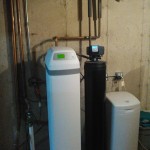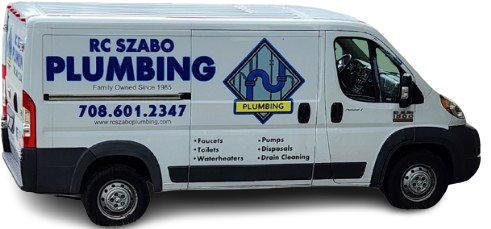Water Softeners
In many towns across the Nation people receive what is known as hard water. Hard water is water with an excess amount of minerals in it. Hard water also may contain sediment from old galvanized water pipes. Having hard water can put added strain on your plumbing clogging your water lines, plugging Faucets, and deteriorating your water heater. This is why we have a use for Water Softeners in our homes.
The use of Water Softeners or Reverse Osmosis systems for your whole home and or certain Faucets. We will provide you with the know how to maintain and monitor your system for problems. Providing Family, Friends, and yourself with the highest quality water, will keep you healthy and from not ingesting un-needed sediment and minerals in your water.
If you are having problems with your Water Softener or Reverse Osmosis system, we can repair broken or defective parts to get your clean water flowing again at the fraction of the cost to replacing the whole system.
Types of Water Softeners
Traditional Method
The traditional water softening method works off of a ion exchange principle. This is achieved when water passes through a resin which replaces the high calcium and magnesium levels with sodium. This produces a slightly higher salt level in our water but takes out the un-necessary magnesium and calcium
Salt Free Water Softeners
With recent health studies people are trying to keep there salt consumption to a minimum. This is why Salt-Free Water Softeners are becoming important.
Chelating
Chelating systems hold an chelating agent which absorbs the calcium and magnesium in your water. There will be no added sodium in your water.
Magnetic
The controversial magnetic softening systems are either an electronic or magnetic system is supposed to stripping the water of the bonding. This clip on plugin device is to create a magnetic field which repels the minerals from moving past the device. Recent studies have shown no significant change in the water once it passes by the device. We do not recommended this system.
Rust Inhibitors
If you are on a well water system having a Rust Inhibitor system can be extremely beneficial to the quality of water you are bringing into your home. Complete rust inhibitor systems are composed of a UV Filter which kills bacteria & viruses in your water, a Sub-micron post filter which reduces sediment and organic particles further, a Carbon Filter which reduces the amount of herbicides, pesticides, and other harmful chemicals that may be present, a Copper-Zinc & Mineral Stone filter which filters chlorine, heavy metals, scale, and stops bacteria and algae growth, a Salt Free Water softener which may be a reverse osmosis system or a chelating system, and a Sediment Pre-filter which will collect large metal particles as well as silt. Simple Rust inhibitor systems may be composed of Copper-Zinc & Mineral Stone filter and/or a Salt Free Water Softener.
Reverse Osmosis
The Reverse Osmosis systems uses a semi-porous filter which does not allow large particles to pass through. This is a osmotic pressurized system. The pressure inside on the fixture make sure the particles you are trying to filter out stay on the incoming side of the system. This in return only lets through small particles of minerals and leaves you with a cleaner water.
Lime Softeners
Lime softeners use a precipitation method adding hydrate lime to the water to be treated. In return the chemical reaction we can see a reduction in both calcium and magnesium. You can check out this great article GE has about the complete lime softening process. Click Here Lime Softeners are used primary in plants and municipal water distribution. There are two processes warm and cold, warm being the more efficient of the two. There is a no home lime softeners on the market today.
What do we Recommended
After years of experience performing plumbing we have seen a lot of hard water situations in homes. The technologies over the years have gotten significantly better and more reliable. The traditional water softener process has all ways worked but it leaves more salt/sodium in your water. What do we know about salt? Salt is a highly corrosive mineral which can be terrible for your water heater. We have seen hard water eat through water heaters and we have seen traditional water softening system eat through water heaters. We feel the traditional method works well but the salt content is the down fall even though they have improved the system over the years. The magnetic systems are un-reliable and have no proof they do anything for your water. Chelating systems seem to work ok but I would still not recommend it unless it was to supplement a Reverse Osmosis system in extremely hard water situations. We feel the Reverse Osmosis system provides the best water for your home. This system adds no salt to your water and is just as effective as a Traditional Water Softener. In extreme cases a Complete Rust inhibitor system may be preferred due to the extensive filtering.
If your Water Softening system is getting old or if you are looking to improve your system RC Szabo Plumbing can install your New Water Softeners.
Call us Today at 708-601-2347


